Garland Jeffreys is an acclaimed singer and songwriter whose songs cover a variety of styles including rock, reggae, and soul. His best-known songs are his 1973 single “Wild in the Streets” and his 1979 U.K. and European hit “Matador”. Notably, Jeffreys was named Best New Artist by Rolling Stone magazine in 1977. Jeffreys’ most recent album, The King of In Between, was released in 2011 and is one of the strongest of his career.
Velvet Underground afficionados will also be interested to know that Jeffreys is a long-time friend of Lou Reed and John Cale, and he played on John Cale’s first solo album Vintage Violence, which included Jeffreys’ song “Fairweather Friend”.
Garland answered the following questions by phone on 11/21/12, the day before Thanksgiving, and also the day before he was flying to Europe for some shows. This was for a preview article for his concert on 12/8/12 at the Lobero Theatre in Santa Barbara. (Danny Clinch photo)
Jeff Moehlis: How were you and your family affected by the recent hurricane?
Garland Jeffreys: We’ve been fortunate. And we realize that we’ve been fortunate, of course. We live in a highrise building, that’s not a fancy building or anything like that, but we’re on the eleventh floor so we don’t have those problems. During the worst part of it, where in New York City the light and power were out, we had to walk up the stairs back and forth three times a day, stuff like that. But none of that has any significance when you compare it to the struggle that people have gone through, and continue to go through.
JM: I’m happy to hear that.
GJ: We’re not far from the river, but we’re far enough where we were not harmed whatsoever.
JM: What can we look forward to at the upcoming show in Santa Barbara?
GJ: I met a number of people in Santa Barbara last year, Rick Williams [from KTYD] and his entire family – fantastic people, really really nice people. So I’m really looking forward to the show. When I came last year I met Hale Milgrim. I met a few other people, and they were very, very warm to me. Some of them have been fans of mine for years.
What I do in a show is I put everything on the stage. Everything happens. Meaning I put out to the audience. I’m excited about the audience, and I’ll have a lot of friends there. But even if there are no friends, my goal is always to pour it out to the audience who come to see me, and pay to see me.
I really enjoy performing, so I’m very fortunate. And I love the Santa Barbara area, and I look forward to that theater. I went in to see it when I was there.
JM: I missed your show in Santa Barbara when you came in February, but I drove down to LA to see you at McCabe’s Guitar Shop a few days later. One of the things that really struck me is how much you seem to be enjoying yourself when you’re performing. How do you keep it fun after you’ve been performing for a long time?
GJ: I don’t see it so much as a job. McCabe’s is a good example. I’ll be playing there on this tour around the same time. We’ll probably have a great crowd, like the last time. How could you not get in gear for something like that? All these people are excited to see you. I know what I’m doing up on that stage [laughs], and I pour it out. It’s what I do. It’s not difficult. It’s something that I enjoy. It’s a big, big pleasure.
Then, for example, people show up that I know, that I haven’t seen in years. Like at one of the McCabe’s shows, there were people that came to see the show from New York, and that was just a gas. So these kinds of surprises give you a little kick. And then I have a band up there that I like to play with, and we enjoy playing together. Obviously we challenge each other on some level, to bring the best out of us. We’re complementary. I’m complementary to my band. I like to show a certain excitement about what they’re doing, because they work hard, they play well. The same guys that you saw the first time and going to be playing with me again.
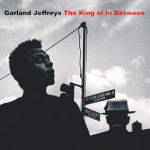
JM: Your latest album, which I really like by the way, came after a fourteen year gap. I’m curious, will we have to wait that long for your next one?
GJ: Well, I’m thinking that the next one will be twelve.
JM: [laughs]
GJ: No, I’m working on a new album now. I’m working on all the songs, that’s the first step for me. Then I’ll bring a combination of my band and other players that I like to work with, like Steve Jordan. Some of the players that played on the last album. I may take a trip down to New Orleans, look around. I haven’t been there in a long time. I’m going to definitely go around to England, to the U.K. I want to visit a couple of friends of mine. We’ll see how those experiences tell in what I’m going to do. I obviously want to make a great album, and also perhaps have something new, something fresh. That’s what I’m always trying to do.
JM: How do your songs typically come together, or is there a typical?
GJ: I’m working right now with a few ideas. Sometimes a title is so good for me. Like “Coney Island Winter” was a great title for me, because it said where I’m from – Brooklyn, Coney Island, that area – and then “Winter” is like a total contrast from the beach world. It’s like “Coney Island L.A.”. And what that does, it creates a certain tension, as far as I’m concerned. If that’s what I’m looking for. Did you ever see the video for that? It’s kind of a barren video. It’s raw. It even has some nighttime shots that I like. Someone did it for me, and I really love the video. It really talks about a Coney Island winter. That whole song is a song about meeting the challenges, the difficulty in people living these days.
What’s just happened here in the Northeast, it’s been tragic to say the least. Even without that, people are struggling with how they are going to live, how are they going to get a job? I can say Mitt Romney’s not going to help you, that’s for sure. He wasn’t going to be the guy that can help us. I think we’re in a better position here with Obama, and what he’s going to do. I think we’re going to see a lot of things that come to pass that are only going to be good for the country, good for the middle class, good for the average person. It’s not about the rich. That’s where I stand. And that’s the kind of world that I travel in musically, interested in the well-being of others. Always have been. In my mind, how can I be happy… I mean, I am a pretty joyful guy, a pretty happy guy. But I’m interested in the welfare of others as well. I’m interested in the way things are going with others. I think that’s what makes the world complete, when we’re all in some way interested in how others are coming along. And maybe we can in fact do something for somebody else. That’s where I come from, all my music has come from for all these years.
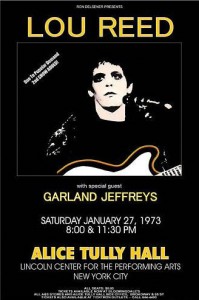
JM: You’ve been friends with Lou Reed since before either of you had a notable music career. Do you have any Lou Reed stories that you’re willing to share?
GJ: We’ve been friends for 50 years. Since ’61, so it’s actually a little longer. I think right now we’re enjoying a friendship that’s better than ever. Maybe it’s our age. We understand each other. I think we care about each other. I think he would do something for me if I needed the help, and I definitely would do something for him. We’re settled down in a certain way. He’s married, I’m married. We have just a very good relationship. It’s been all these years, you know [laughs]? Some things don’t get said. You don’t have to say it. He has a reputation of being difficult, and all that sort of stuff, but he’s never been difficult with me. I think he’s a great guy. But, you know, I’m not the press [laughs].
JM: You’re also friends with John Cale. You wrote a song for him, “Fairweather Friend”, and you played guitar on his Vintage Violence album. What were the sessions like for that album?
GJ: OK, first thing I’m going to tell you, I’m pissed off at John Cale. I’ve been trying to reach him for a few months now, and I send him messages and I don’t hear back from him. So if you have any way of reaching him, send him a message that Garland’s looking for him. He should have called me by now. So I’m pissed off.
I really like John. John is really a softie. He’s not as tough and hard as people think he is, nor as tough and hard as he thinks he is [laughs]. I like the guy a lot. He’s a sweetheart, I think. A really nice guy in the end. He probably doesn’t want to be known in that way. But it’s time to lift the veil, you know what I mean?
JM: Well, when you name your first album Vintage Violence it doesn’t scream “sweetheart”.
[both laugh]
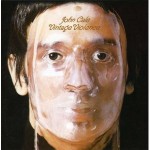
GJ: That album… you saw that poem that I wrote? That was kind of like being supportive of him in the break-up that they [The Velvet Underground] had. I’m friends with both of them [Lou Reed and John Cale]. I like both of them. They don’t affect me at all, whatever they go through. I don’t even listen to it. I don’t even know all of it, you know? You know, John is just a great musician. He’s a very, very interesting musician.
JM: Going back to the ’70’s, a number of your songs have a reggae influence. How did you get into reggae?
GJ: I used to go to this gym nearby, like a YMCA. I used to go there because I loved the gym. It was a great place. It had a track on the ceiling that was so good, and I would run the track, and I met a lot of guys there. It was like a little hang, and I liked it.
There was a guy there, this is like ’68 I think, maybe ’69. There was a guy who had a small, tiny boombox. He gave out the towels at the gym. He had this music on, and I’d ask him from time to time, “What is that?” And he said, “The reggae music, man!” Jamaica, you know? So we hooked up over that. I loved the music, and he would play things for me. He played The Heptones, and then I realized that this music is me. I can connect to this music, you know? And that’s what happened.
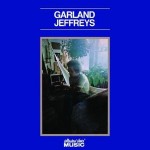
I went to Jamaica. I had a cousin who lived in Kingston, so I went down to Kingston, hung out in Kingston. Then I recorded at Dynamic Sounds, which is where a lot of the great players have played, the great studio players. In 1972 I recorded a couple of songs down there. And that was on my very first solo album. “Bound to Get Ahead Someday” and “Midnight Cane”, these two songs. “Midnight Cane” I think was a bonus track that came out later on [it was on the European release of his first solo album].
So I fell in love with the music. And then in time I met Bob Marley. I knew Jimmy Cliff, but I met Bob Marley and we became pretty close over a number of years. That’s how I fell in love with that music. And I still try to have a song or two on the albums that I’m making. I’m thinking right now, I’ve got a new reggae rhythm for a song I’m working on.
JM: In the early ’70’s, you worked with Dr. John. What was it like working with him?
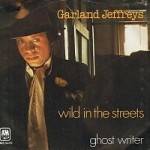
GJ: Dr. John played on my first solo album. He came to town once, and he was the arranger with me of “Wild in the Streets”. He came into the city. He brought his band with him, and then I added a couple of players to it, and we recorded “Wild in the Streets”, which is really considered one of my great songs. For me, I consider it my first real rock ‘n’ roll song. And Dr. John played a big part in that.
You know, along the road with me I met many people. They’re kind of like teachers. Like I met Levon [Helm] in the late ’60’s. I met Stan Szelest. You probably don’t know him.
JM: No, I don’t.
GJ: He was from Buffalo and Toronto. He was the original keyboard player in The Band, before Richard Manuel. He was in that band [Grinder’s Switch], and John Cale was in my band. This is the band that I had for Grinder’s Switch. John Cale was in that, Stan Szelest, and a couple of other players. Then I met Robbie Robertson and all those guys in the late ’60’s. That’s when they were playing with Dylan. That’s how a lot of those connections took place. And it’s been a nice ride ever since. Just continuing to meet great players and great musicians, and also a lot of them happen to be great guys and great women.
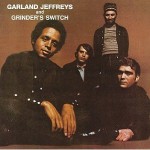
JM: You mentioned Grinder’s Switch. That album is out of print, although you can buy it used for outrageous amounts. Is there any chance that album we be reissued?
GJ: Yeah, there’s talk about it right now actually, because there’s a guy I know who’s a fan of mine at Vanguard, which is where that album came out. They’re talking about perhaps releasing it again.
JM: That’d be great. It sounds like something I would like.
GJ: It’s very much influenced by The Band, that album. You can really see what I just explained to you, the connection there. There were people around at that time who I learned a lot from. And Levon, in his recent years we reconnected. I went up and did the Ramble. Lovely, lovely guy. Of course, he’s passed on, sadly. Wonderful, wonderful musician. Wonderful drummer.
JM: You’ve already touched on this, but what are your plans, musical or otherwise, for the near future?
GJ: My main plans are to play everywhere I possibly can. And that’s what I’m doing. I’m doing that, I’m playing everywhere. I leave tomorrow and I fly to Norway. I play in Norway, I play two shows in London, I’m playing in Wales. So I’m playing five, six shows, then I’m flying back home. And then I’m coming to the West Coast, to do the West Coast stuff.
You know, I take a break here and there, but then I get back to playing. That’s what I’m doing. That’s what I’m up to these days.
I feel like I’m a very blessed guy. I have a fantastic wife – we’ve been together 31 years. I have a fantastic kid, a teen. She’s really very talented herself. So I feel great being a dad. That’s what I was doing all those years, taking care of my kid, raising my kid with my wife. Not being on the road. Not traveling everywhere like I’m doing now. Because, first of all, I wanted to be around for that experience myself. I wanted to be the father of a child who would have a father around. I took her every morning to nursery school. I mean, she’s really a very smart kid, and she’s well-adjusted, and she’s fun. And I like to think that I contributed to some of that. I’m having a full life. Rock ‘n’ roll in more ways than one! [laughs] I’m enjoying myself.
JM: Do you want to set the record straight on anything about yourself, or your career?
GJ: You can say this. There are things that happened, or you might say didn’t happened that should have happened. I don’t have any regrets about it. Disappointments? Yes. I guess that’s all in the paragraph that says, “I know my talents, I know my ability. Perhaps down the line other people will know also.” I think you get it.
JM: Where are you speaking to me from?
GJ: I’m in the city [New York City]. I’ve been living in the city for all these years. I grew up in Brooklyn. I live in my place not far from the East River. I’m looking out my window right now. It’s, of course, nighttime. I live in a very nice little community. I’m looking right now down, and there’s an ice skating rink down there. First of all, I see the Christmas lights around this park. I’m just so lucky to live here. I’m looking down and I see people in a circle around the ice skating rink. It’s really cool.
For Garland’s advice to an aspiring musician, click here.

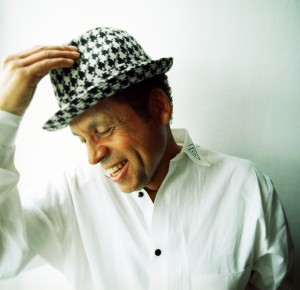
Discussion
No comments for “Interview: Garland Jeffreys”